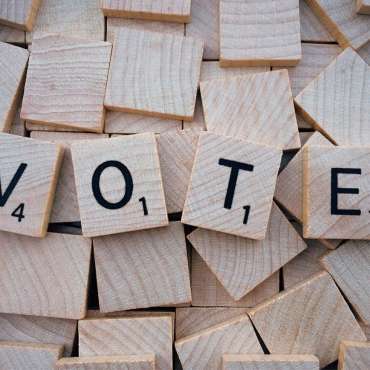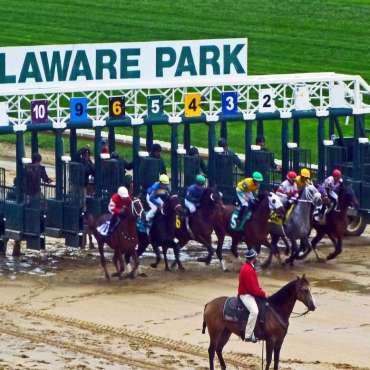Illegal online gambling remains a threat to both player protection and government tax yields. Yet, as Paul Girvan explains, most regulated jurisdictions continue to tolerate operators making money outside of the regulatory environment. Could more be done to fight the unlicensed sector?
Online gambling has existed since the inception of the internet, and over time we have seen increasing concern arise from the issue of black market gambling.
Equally, nearly all countries implementing legal market controls have encountered rising rates of gambling harm and negative social consequences, the causes for many of which remain outside the licensed market.
While there is much talk about the “licensed level playing field”, it’s hard to see how any marketplace is effectively levelled to the benefit of any parties if it tolerates the presence of the illicit black market. These shadow operators reap a competitive advantage as their regulated competitors pay a licence fee and taxes and comply with restrictive marketing guidelines and problem gambling programs, not to mention their inherent advantage of long-standing presence in the marketplace. This is not a surprise, since making money without paying any fees or taxes is always a lucrative business model.
Legislators often assume legalization and regulation will eliminate the ‘black market’ or at least reduce it to insignificance, but that is not the case. In February of this year, the Betting and Gaming Council released research from a PWC report, a few of the highlights of which are below:
- In Norway, the black market now accounts for over 66% of all money staked
- In France, the black market accounts for 57% of all money staked
- In Italy, the black market accounts for 23% of money staked
- In Spain, the black market accounts for 20% of all money staked
Meanwhile, a United Nations report from December 2021 found global illegal operators take in up to a staggering $1.7tn worth of bets per year, creating huge risks for the integrity of global sporting events and fair play.
Recognising the marketplace: 3 stages of regulatory evolution
Just as regulation evolved to protect consumers and control the online gaming industry, the black market has adapted to take advantage of the shift to increasing licensing and regulation. In the absence of effective consumer education concerning what is and is not a licensed, regulated and tax-paying betting and gaming operator, the black market has thrived.
Presently, the world is split into 3 stages of regulatory evolution:
Pre-Regulated Market:
No specific laws exist in the market concerning online betting and gaming. As such, there is no black or white market for online betting and gaming in such a territory – the market is permissible, both legally and practically, but all entrants acknowledge some potential legal risk in the future if they choose to offer services in this pre-regulatory state.
Regulating Market:
These markets – in the process of drafting and enabling legislation -may be labelled “grey” if they have little to no currently enforceable law to restrict or control online entrants.
A territory at this stage can, sometimes visibly, sow seeds of black market expansion as legal and compliance conversations before launch push certain operators to make decisions over whether to “go rogue” and remain in a market, illicitly, without a licence.
Regulated Market:
A market featuring licensing and taxation, with policing and enforcement, typically only against the licensed operators. The UK would be a prime example.
In these markets, government insouciance allows the black market to exist, and tightening of regulations for licensed operators can offer advantage to the black market. In the UK, one of the most mature regulated online gaming markets, the present government have embarked on a process that is likely to lead to fundamental change.
Changes like these are opportunities for the black market and help provide the raison d’être to remain, illicitly, in a marketplace. These changes to “the business of betting and gaming” across products – ads and bonusing in particular – can often lead to demand from the gambling consumers for what they have become “used to”. It is unregulated illegal operators who will continue to provide these favoured ‘comfort blanket’ elements, appealing to consumer familiarity.
Consumer Understanding
The issue with the status of the black market, historically and today, is that few consumers actively identify the sites and apps of these operators as illicit, illegal or irresponsible.
Why? The answer, simply, is due to the way that players find and access their services. They look, feel and operate like any other online betting and gaming provider, and consumers locate them via identical means: search engines, social media, online ads, referrals, PR etc. At no point did any consumer need to go to the seedy part of town to find these providers – it was, and is, readily available via their smartphone handset and a Google search.
Searching online for a casino or sportsbook will deliver mixed results. Some legal, licensed sites will show up in regulated territories but so will many unlicensed sites, available without any reference to national or state laws, disrespectful of product restrictions, and, alarmingly, without any contribution to tax or player protection measures.
If players are indifferent towards whether an operator is legal, licensed and regulated, that is a byproduct of a general lack of education and public awareness. The mass market therefore has little understanding of what is, and is not, a licensed site, nor why such a system even exists. Or why they should care.
With the rise of legislation or regulations banning or limiting advertising by regulated companies, there is little regulated gambling companies can do to distinguish themselves from black market operators and educate the public. Consequently, the black market takes advantage of this educational vacuum.
If a jurisdiction implements a rule mandating no retention bonuses for licensed sites, how might consumers react? By hitting Google and searching for bonuses to find dozens, and likely hundreds, of criminal black-market options, hiding in plain sight among legal, licensed and compliant operators. None are licensed. None protect their players. None pay any taxes or adjust their business to become and remain compliant. That is the competitive advantage gifted to the black market.
What does this mean for taxation, player protection and operators?
What does tolerating the presence of the black-market mean, in practical terms, across these key areas?
Taxation
The tax yield from betting and gaming will be depressed, frustrated and decreasingly predictable. Taxation will only be accrued from those sites who responsibly get in line, comply with conditions, gain licensing, pay taxes and operate according to rules and regulation, all while facing daily unfair competition from black market sites. For every site that gains a licence, there are conservatively two or more who remain offshore and continue to target a market but pay no tax, protect no players and comply with no rules.
This duality, largely invisible to consumers, is referred to by the term “channelisation”: the percentage of the betting and gaming universe that moves from a pre-regulated market status to a licensed and overseen status once regulation begins. The lower the channelisation percentage, the lower the taxation revenue realised from betting and gaming, and the weaker all consumer protection protocols.
If the black market is not effectively removed, or excluded from discovery, consumers will continue to unknowingly engage with it, in much the same way as they did before regulation. Online, and across the media channels predominantly visited by today’s audiences, the black market exists tangibly and, in some cases, popularly, to the extent they can even drown out the awareness and relevance of licensed sites.
Player Protection
Black market operators that illicitly target regulated markets create issues for individuals and society, primarily among minors and those at risk of gambling-related harm.
Since that black market is just a Google search away, the much-vaunted goal of player protection has, to date, been but a hope.
All of the provisions of the legislation, the rules from a regulator, and the fines and threats to licensed status, target one end: the protection of at-risk and vulnerable individuals. This will not happen, in any meaningful way, however, if we tolerate the black market and fail to introduce adequate provisions and products to allow regulators to monitor, police and enforce the meaning of licensing.
Operator Protection
Operators have paid considerable licence fees and substantial taxes, while complying with stringent and costly problem gambling protocols on their path to accrue market share, often accepting short-term losses while hoping for long-term gains. They need the assurance of a level playing field.
Yet that is something they do not currently enjoy in comparison to the black market. To maximise their investments in the regulated marketplace and help maintain a safe, regulated market, it is imperative that the syphoning off of revenue by the black market is decreased and curtailed.
Consequences
Without adequate systems to monitor, police and enforce a regulated marketplace, three consequences can be identified:
- declining tax revenue for government and good causes, since unlicensed sites steal regulated revenue and thus taxation.
- a reduction in social responsibility and a hollow meaning to “responsible gaming” making any aim of player protection an unrealisable hope for the future.
- reduced revenue growth for operators that did comply with the will of lawmakers and the actions of regulators. This is especially significant now in the US with astronomical costs of acquisition (CPAs) and no sign of sustainable ROI. It’s unsurprising that many publicly traded gaming businesses have begun to see feedback, negatively, across their share values and market cap due to these imperfect marketplace pressures.
These are not consequences that should be accepted but with a lack of solutions to date, they are.
Efforts to Combat the Black Market
As was pointed out in the BGC report, produced by PWC, regulators in Sweden, Belgium, Spain, France, Holland, and Denmark are actively seeking to limit the incursion of the black market into their domestic markets. However, some of this has backfired especially in terms of limiting advertising and bonusing (Italy, Norway and Spain) which has only encouraged players to interact with the black market and led to a lack of public education concerning the risks of unlicensed gambling.
In Asia, the Asian Racing Federation established an Anti-Illegal Betting Taskforce with the stated purpose to “foster and enhance international cooperation among horse racing operators, regulators, intergovernmental organisations and government agencies in order to better combat the threat of illegal betting and other financial crimes to horse racing integrity in particular, and sport in general.”
The Council’s stated goals are to conduct research to identify links to organised crime, and to expose links to horse racing and sports and thereby define the impact on integrity of these sporting events.
The rapid rise of sports betting in the US has led to some heightened visibility on the issue of the black market, generally focused on sports integrity issues and consumer harm. The American Gaming Association has been active in lobbying for protections, but these seem at the moment focused on the federal level, where little real concrete and effective action has been taken.
At the state level, the issue is beginning to gain prominence. In Connecticut, the state warned basketball fans about black market operators targeting residents for the Final Four. In a 2020 Forbes article the illegal sports betting market was estimated at anywhere between $50bn and $200bn in bets placed. Citing the American Gaming Association, Eilers & Krejcik Gaming, and H2 Gambling Capital, the Forbes article articulated a position on keeping tax rates low thus allowing legal operators to better compete with the black market.
While these efforts are laudable, and certainly raise the issue in the consciousness of the public, they do not offer a systemic and effective solution that can be implemented by authorities.
One potential tool
An example of an ‘early mover’ in this arena is Atropos Intelligence, a startup founded by industry veteran Ismail Vali, which is developing a technical and advisory platform to address this vulnerability. Atropos has built a suite of products under the banner of a platform called Yield Sec (short for yield security).
“Player protection and the operation of a sustainable industry, onshore and subject to regulation, are, in our view, simply facets of an optimal customer experience and you cannot effectively or sincerely protect customers without protecting the marketplace first,” said Ismail Vali, founder and CEO of Atropos Intelligence, the owners of the Yield Sec platform. “Yield Sec’s mission is to help all legal betting and gaming marketplace stakeholders realise a fair, safe and protected level playing field for licensed, responsible betting and gaming, in which harm is minimised, the customer experience enhanced, and society safeguarded.”
Yield Sec software scours the internet for all instances of commercial betting, gaming and lottery sites, apps, links, posts, mentions, etc, from within and without the jurisdiction, focused on those clearly targeting the territory. Relevant betting and gaming keywords and phrases are found by the system and analysed, categorised, ranked and indexed.
Once separated into what comes from legal operators and what comes from illegal entrants, the index is prioritised into the various threats to taxation, licensed revenue and player protection that each offering represents.
Human intervention, machine learning and AI help rank and order the threats to arrive at a matrix. This presents a detailed view of what content needs to be controlled and remedied at the legal operator level, and what content needs to be cleared and removed from illegal operators. To facilitate removals of illegal content, Yield Sec works alongside regulators and law enforcement across search, social and digital media platforms which supply the “oxygen” of advertising.
By restricting and disabling the availability of illegal operator presence across ads, social media, search engines and sites, it cripples the ability of the illegal operators to acquire new customers and reach and reactivate existing ones. The goal is to make it unprofitable for illegal operators to remain in operation. This startup mission is a work approaching fruition and could hold massive potential for the industry.
Intolerance & Technology
Society has, to date, tolerated the black market as online betting and gaming has grown as a global presence. Given that the business of betting and gaming is now entering maturity in many territories, it’s past time to address the illegal operator issue with more than the ‘hope and prayer’ that somehow regulation, in and of itself, will frustrate and stymie black market operators.
The regulators who have had to adapt to the rise and prevalence of online gambling have done a great job with the tools they have had. Now, though, it is time to employ the technology that made the growth of the online industry possible, to make it fair, safe and sustainable.





